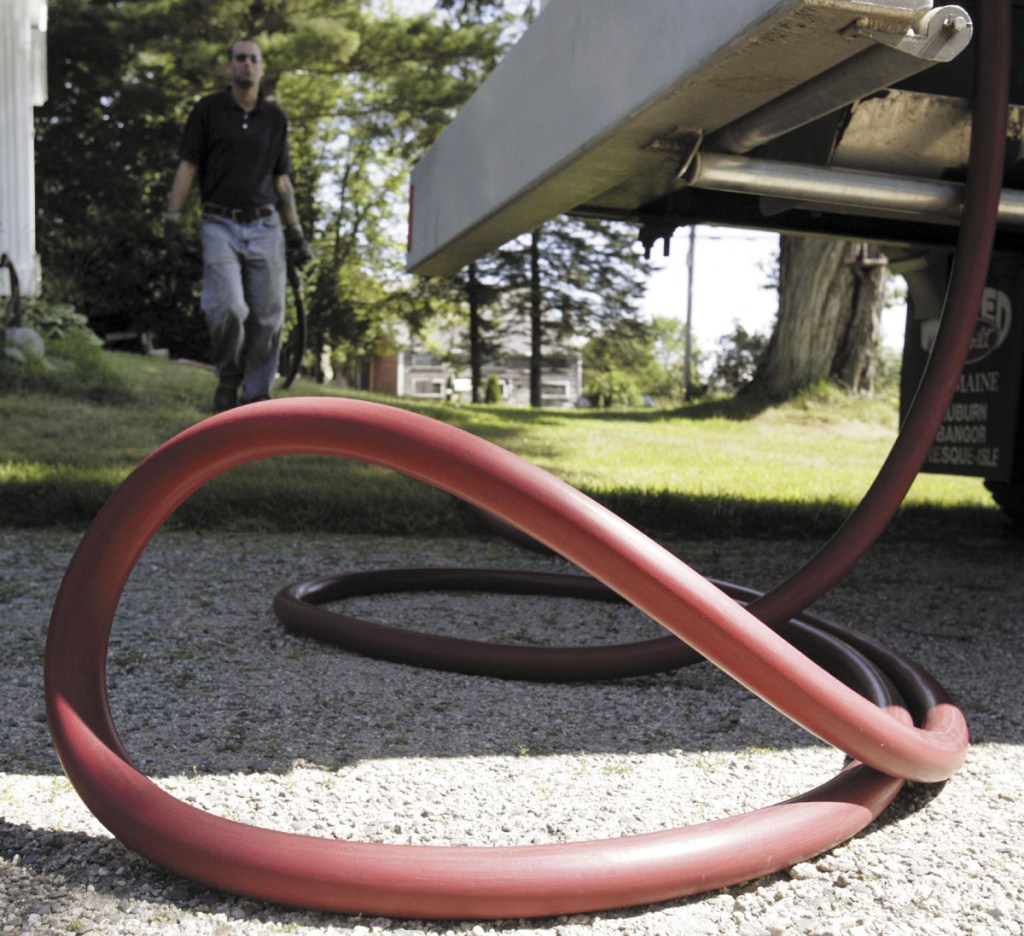AUGUSTA — It’s been so hot this summer that heat records in some parts of New England melted away with temperatures in the 100-degree range. At the same time, the frigid days of the winter ahead are on the minds of officials in the region’s statehouses.
As July went on record the warmest month on record in Portland, President Barack Obama’s proposal to chop the budget of the Low Income Home Energy Assistance Program nearly in half hung eerily in the background. Amid the simmering heat, Gov. Paul LePage had some chilling news for people attending a Capitol for a Day meeting in Dover-Foxcroft.
LePage warned that Maine’s LIHEAP funding from the federal government could be cut in half, from $54 million for this year to about $26 million. He noted that the reduction could come as the cost of heating fuel rises above last year’s level.
An organization that follows those trends agrees. The National Energy Assistance Directors’ Association says the average cost of heating a home in New England with oil will be about $2,983 this winter, nearly $650 more than last year. High unemployment and colder-than-average winter temperatures exacerbate the problem for poor families, it notes.
While the president presented his budget in February, congressional review of the allocations is not expected before September. Given past experience, the cuts may not be as severe as states now fear, and the administration has said it’s willing to revisit the figures.
In Maine, LePage has pledged to do all he can, despite the state’s tight fiscal environment, to prevent people from freezing this winter if the worst comes true.
While it’s never too early to think about funding for a program that’s critically important in chilly New England, preseason jitters over the program are an annual occurrence. And the usual pattern is for funding to come through — after pressure is applied from lawmakers from cold states.
“Every president in the last 15 years has proposed cuts in LIHEAP. It’s not unusual to see a president knock LIHEAP around,” said Richard Moffi, fuel assistance program chief for Vermont, which is looking at a cut in heating assistance from $25.6 million to $11.6 million. “Congress usually comes along and they hold the line.”
And as of now, Obama’s proposal to cut LIHEAP in half from about $5 billion is just a proposal, says Kirston Figueroa, director of energy and heating services for Maine State Housing, which administers heating assistance.
“It’s such a moving target because we never really know until we know,” Figueroa said.
Celeste Lovett, New Hampshire’s fuel assistance program manager, agreed. Federal figures show New Hampshire’s LIHEAP funding could be cut from $36 million to $15 million.
“It’s really too soon to tell,” Lovett said. “What we’ve done in New Hampshire is go forward with taking applications.”
In Connecticut, the allocation would drop from $98 million to $41 million, Massachusetts from $175 million to $81 million, and Rhode Island from $34 million to $15.4 million.
New Hampshire started accepting applications in mid-July from vulnerable households — those with residents over age 60, under age 6 or people with disabilities. The application process starts for the general public on Sept. 1.
The Obama administration, questioned about the proposed funding cut, acknowledged that the new LIHEAP figure was based on the expectation that fuel prices would be lower this winter. But in northern New England, they’re expected to be in the $4-per-gallon range.
That affects a lot of families. About seven in 10 New England homes use heating oil, the University of New Hampshire’s Carsey Institute says. Federal figures from 2007, the latest available, show that just over 355,000 households in the six New England states received LIHEAP assistance.
Federal officials say that the LIHEAP budget proposal for fiscal 2012, which starts Oct. 1, is $2.6 billion. That compares to $4.7 billion for the current fiscal year, said Kenneth Wolfe, a spokesman for the federal Department of Health and Human Services Administration for Children and Families.
.
Send questions/comments to the editors.



Success. Please wait for the page to reload. If the page does not reload within 5 seconds, please refresh the page.
Enter your email and password to access comments.
Hi, to comment on stories you must . This profile is in addition to your subscription and website login.
Already have a commenting profile? .
Invalid username/password.
Please check your email to confirm and complete your registration.
Only subscribers are eligible to post comments. Please subscribe or login first for digital access. Here’s why.
Use the form below to reset your password. When you've submitted your account email, we will send an email with a reset code.